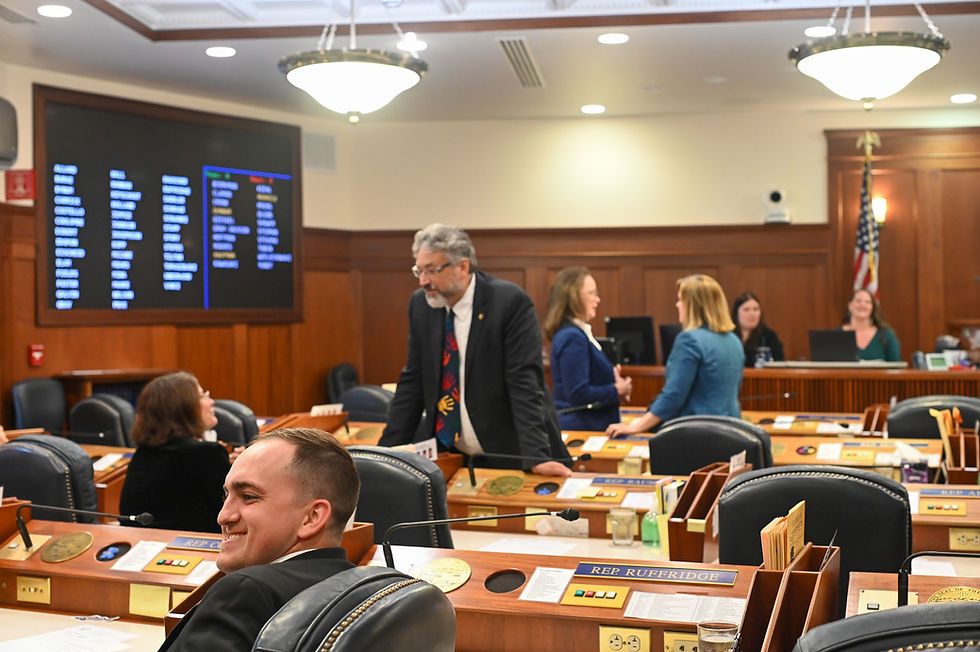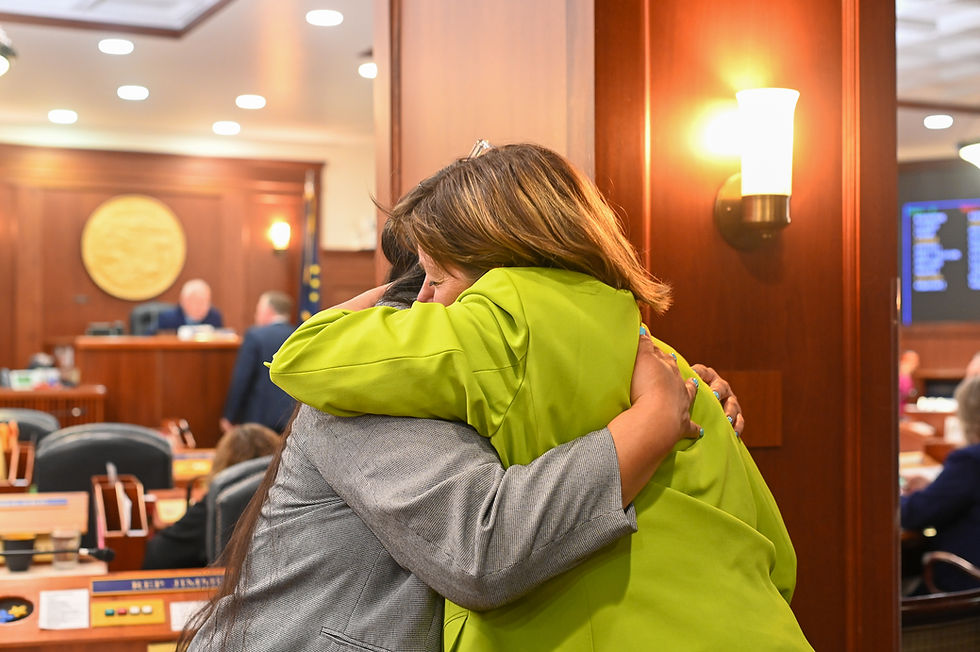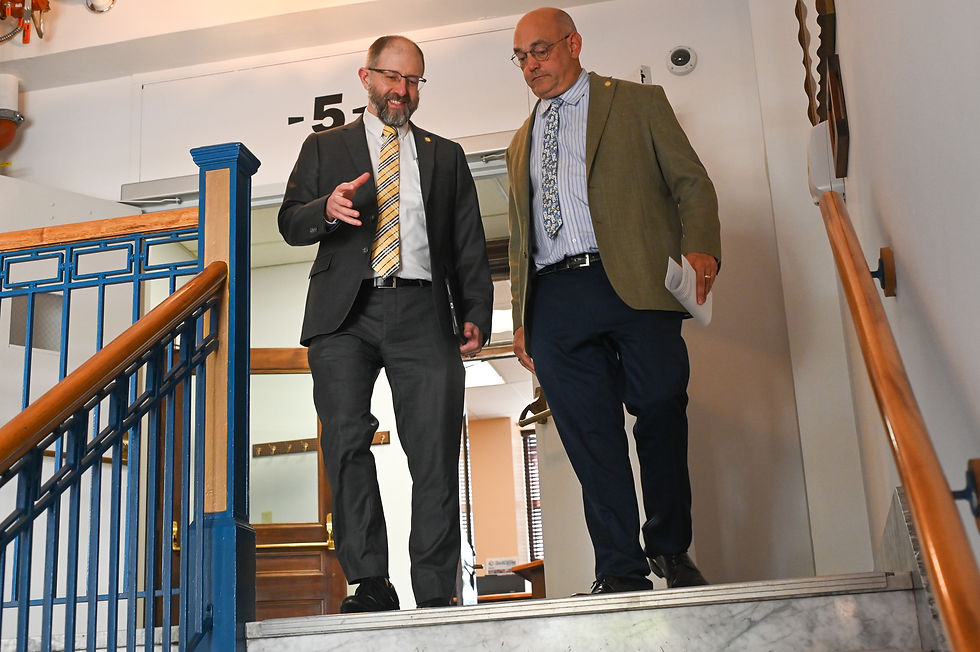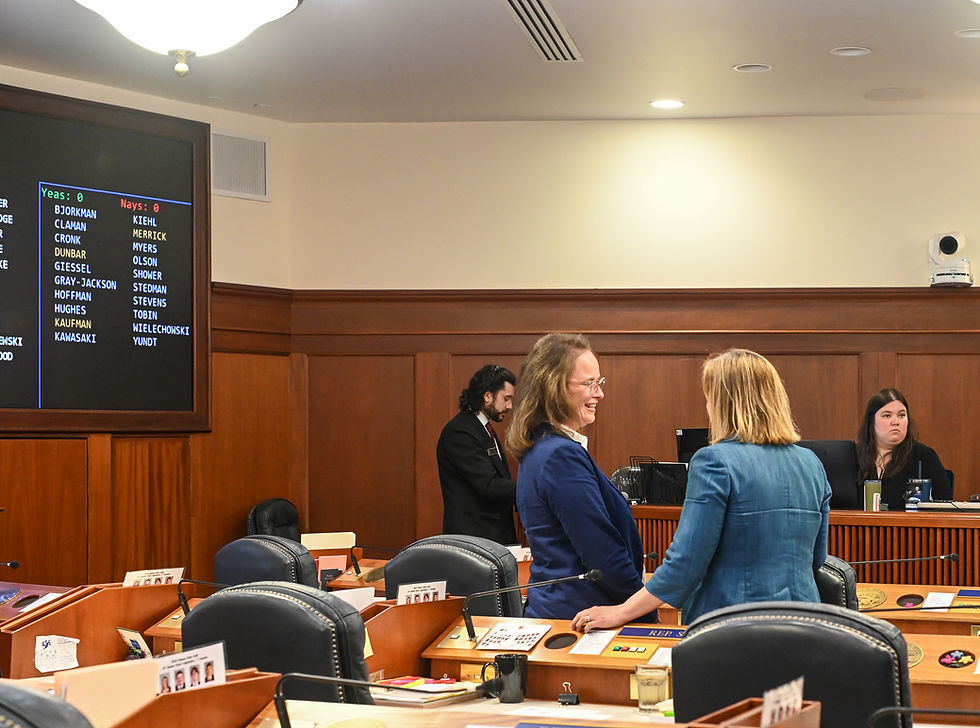Legislature overrides education funding veto, recesses special session until Aug. 19 as Dunleavy issues Agriculture Department ultimatum
- Mark Sabbatini

- Aug 2, 2025
- 6 min read
Updated: Aug 5, 2025
Lawmakers vote to restore full $700 increase to Base Student Allocation; governor questions value if education policy is not addressed
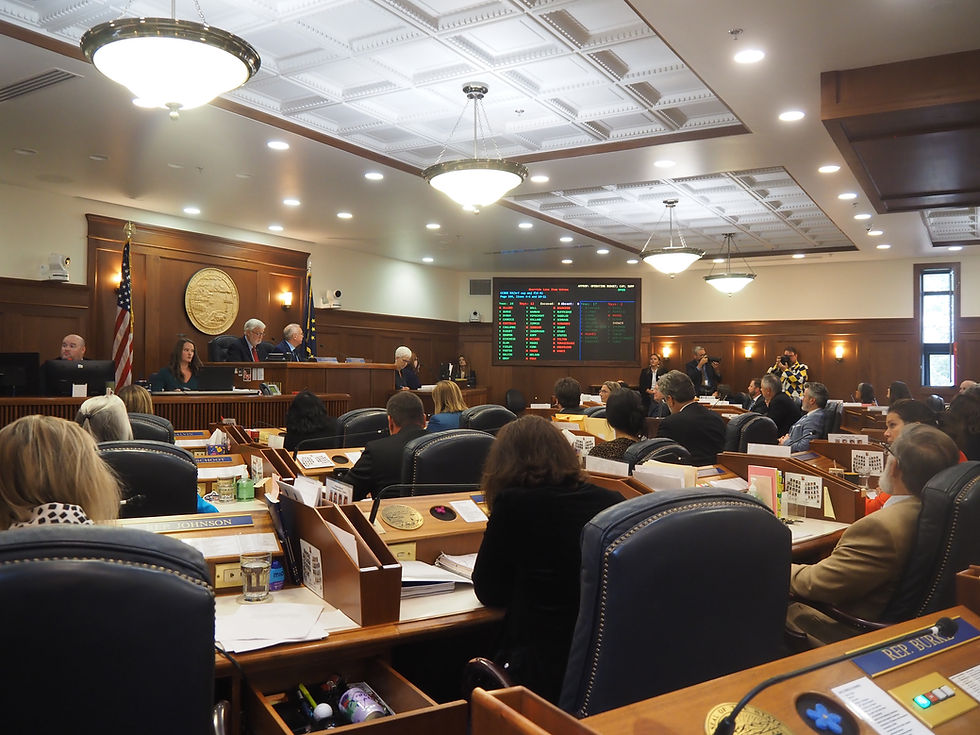
By Mark Sabbatini and Jasz Garrett
Juneau Independent
The Alaska Legislature overrode two vetoes by Gov. Mike Dunleavy, including a cut to education funding, and rejected his executive order forming a state Department of Agriculture during the opening day of a special session on Saturday.
But the session will extend beyond the single day that many legislators expected, with the House and Senate recessing until Aug. 19 after Dunleavy told leaders of both chambers he would implement an executive order establishing the agriculture department if they adjourned.
What legislators will consider when they reconvene is unknown, said Senate President Gary Stevens, R-Kodiak, and House Speaker Bryce Edgmon, I-Dillingham. The special session can last for up to 30 days.
The main focus of both Dunleavy and legislators on Saturday was his line-item budget veto of $200 of a $700 increase to the $5,960 Base Student Allocation for public schools. The Legislature passed the increase by a 46-14 vote during the regular session and 45 votes are necessary to override a budget veto.
The vote to override was 45-14, with Senate Minority Leader Mike Shower, R-Wasilla, an excused absence. After the joint session adjourned, lawmakers received applause from demonstrators lining the hallways. Some wiped away their tears. A sign that previously asked to override the veto was exchanged with a "thank you."
"This is a pretty exciting day," Stevens said during a press conference afterward with other House and Senate members voting for the override. "It’s the first time I understand in 37 years that the Legislature has overridden an appropriation veto of the governor. I heard someone on the floor of the House today thank the governor for calling us in. I, too, want to thank him for convening us. If we had not had this opportunity to override we would have to wait until January, so at least we've been able to take care of that."
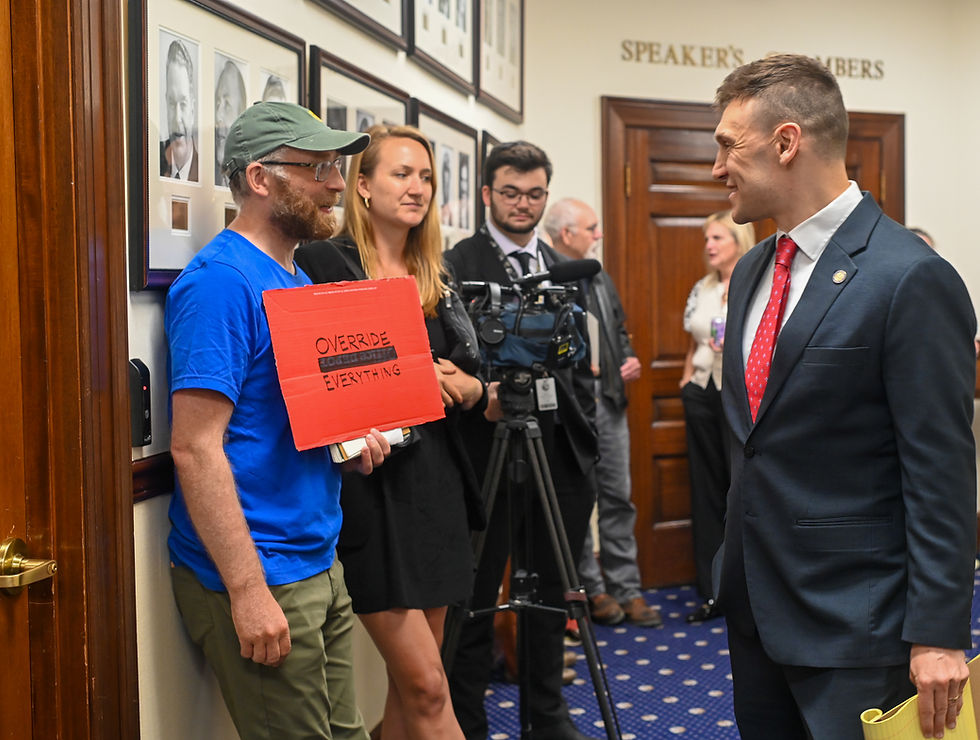
Dunleavy’s intent in calling the special session was to thwart overrides of his vetoes. He scheduled it when a key legislator was on military service abroad and asked Republicans to stay away for the first days when override votes take place. While the tactic failed, he said ordering the special session wasn’t a mistake.
"No, it wasn't because this gives the people of Alaska (a chance) to see where people stand on these votes," he said during a press conference immediately after the one by legislators.
He said the question for legislators supporting the override is, "Now that you have the money, do you think that will take care of things? And if you say no, then when are you going to schedule the meetings to get some stuff done? What are your big educational initiatives besides money?"
The only change in vote by members present was House Minority Leader Mia Costello, R-Anchorage, switching her yea vote during the regular session to a nay on the override Saturday. In an interview after floor sessions, she said conversations with her constituents and the governor were the reasons she voted to sustain his veto.
"I literally went door to door knocking on doors of my constituents' homes and talking to them," she said. "And there is a concern that we spend a tremendous amount of money — around $23,000 per child in the Anchorage School District and they would like to see better results…I also listened to the governor saying that our fiscal situation is pretty challenging right now."
The other veto override was on SB 183, which requires the state Department of Revenue to provide data to lawmakers about oil tax settlements, which arose from concerns the state is settling such disputes for much less than their stated value. The vote to override was 43-16, three more than necessary, and completed what Stevens said were his top two priorities of the special session.
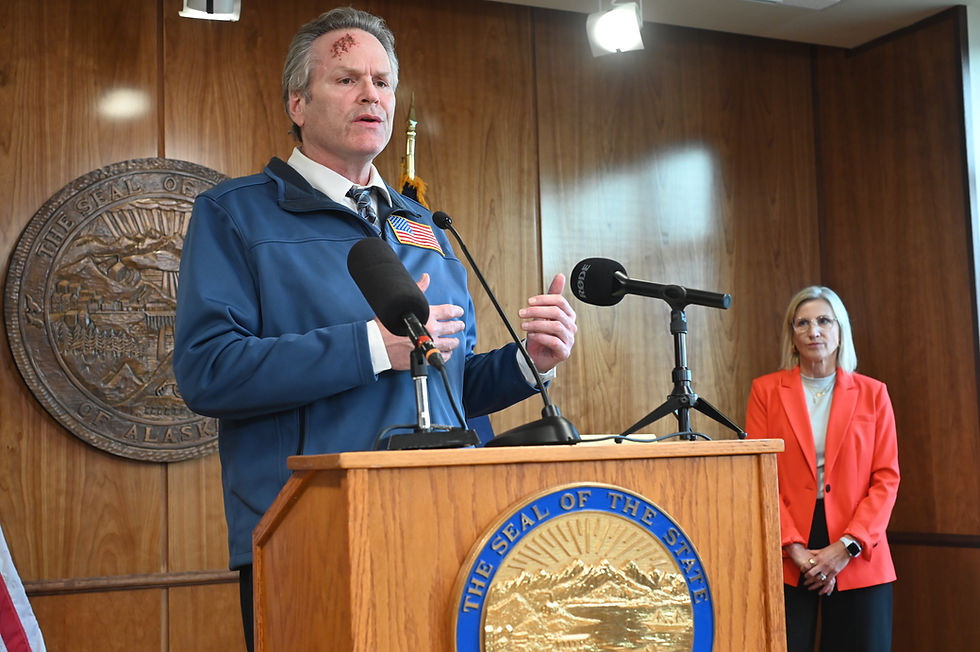
Dunleavy, however, had a different and longer list of priorities, including a multitude of education policy measures and his executive order for an agriculture department. Three education policy bills of his were formally introduced, but legislative leaders said no action on them was planned until January, and his executive order was also shelved.
An official letter by Stevens and House Speaker Bryce Edgmon, I-Dillingham, rejected the governor’s request to establish the department was read in both chambers during their respective floor sessions Saturday.
It states an "introduction of an executive order during a special session is unprecedented," and the Legislature already voted during the regular session to overturn a similar executive order.
"We encourage you to submit the matter to the Legislature, in the form of a bill, for introduction by the respective Rules Committees next session, where such a measure would receive consideration in each house and go through the normal legislative process," the letter states.
Letters from Dunleavy to Stevens and Edgmon responded to the Legislature's refusal to accept his executive order establishing the agriculture department.
Dunleavy wrote he would treat "this attempt by the Legislature to circumvent the constitutionally mandated process to be legally ineffective." The letter adds if the Legislature convenes in joint session to disapprove the executive order, he will consider the Department of Agriculture to have become law and "proceed accordingly."
The Senate and the House, partially in response, both passed a resolution for a recess of longer than three days. The Senate’s 19-0 vote occurred before the joint override session, while the House’s vote after that session was 21-19 along majority-minority caucus lines.
The resolution allows the Legislature to postpone its next session until Aug. 19 — and that could be a "technical session" where only a few necessary lawmakers show up to do a quick gavel-in, gavel-out meeting where no action takes place since a quorum isn’t present.
Much of the discussion that did take place Saturday was sparked by the all-Republican House minority caucus, which is largely supportive of Dunleavy’s education policy goals, expressing displeasure with the majority’s effort to speed through the process and limit the special session to a single day.
The letter to Dunleavy rejecting the agriculture department, for instance, was by two leaders presuming to speak on behalf of the full Legislature, said Rep. Kevin McCabe, R-Big Lake, during floor debate.
"I think it's highly unusual that you would make that unilateral decision without input from us, without discussing the legal memos, without at least putting this on the floor so that we all have an opportunity to weigh in on it," he said.
Legislators in the mostly Democratic House majority said the joint House and Senate vote earlier this year overturning a similar executive order made the will of most of the Legislature clear.
Other minority members — along with Dunleavy — said majority caucus members were avoiding a discussion about education policy by seeking to adjourn quickly. But Rep. Louise Stutes, R-Kodiak, in the majority caucus, said an education task force scheduled to begin meeting Aug. 25 will address policy issues of concern to the governor and other officials.
"So it's not like we're just shoving this aside and saying we don't want to deal with it, we won’t stay," she said. "We certainly do. Another huge factor that needs to be considered is we talk about being conservative and the fiscal situation of this state. It costs in excess of $30,000 a day to be in special session."
The recess by lawmakers means vetoes by Dunleavy on many other bills and budget items will stand. Those include child care and infant learning funds, capping interest rates on payday loans, and a commercial fishing loan program. Stevens said those items were not considered because it was uncertain if enough votes to override them existed.
Dunleavy also has the authority to call the Legislature into another special session immediately after adjourning the current one. He did not rule out that option when asked about lawmakers ending the session without taking up his education policy bills.
"I will always reserve the tools afforded to me by the constitution of Alaska to get policy done and to move the state forward," he said.
• Contact Mark Sabbatini at editor@juneauindependent.com or (907) 957-2306. Contact Jasz Garrett at jasz@juneauindependent.com or (907) 723-9356.
